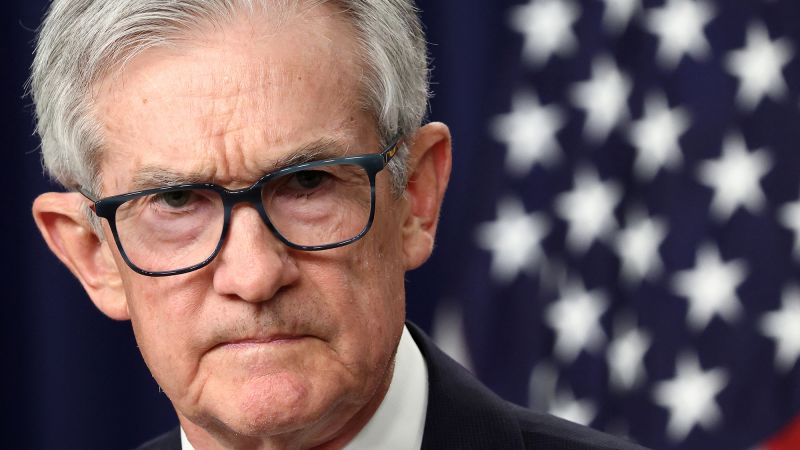In recent discussions regarding the dominance of the US dollar and the stability of financial markets, the potential removal of Federal Reserve Chair Jerome Powell by President Donald Trump has stirred considerable concern. Such an unprecedented action could threaten to instigate a significant revolt within global markets, potentially leading to a collapse of the dollar and US bonds—an outcome that would have far-reaching repercussions on both national and international economic landscapes.
Speculation surrounding Trump’s intention to dismiss Powell gained momentum when the US dollar index, which gauges the dollar’s strength against six major foreign currencies, saw a notable decline, plunging by as much as 0.8% earlier this week. CBS News was the first to cover these developments, emphasizing the gravity of the situation. However, later in the day, Trump clarified his stance, asserting it was “unlikely” he would proceed with firing Powell, thereby mitigating the immediate adverse impact on the dollar index, which settled to a reduced drop of 0.3% by midday.
The independence of the Federal Reserve is widely regarded as a foundational cornerstone of the US financial ecosystem. Any perceived erosion of that independence could lead to tumultuous sell-offs in the dollar and US government bonds. Such developments would not only impair America’s economic stability but also tarnish its reputation on the global stage, damaging investor confidence.
Financial markets have exhibited volatility throughout the year, particularly as Trump intensified his critiques of Powell, urging the central bank to lower interest rates. Despite the fervent discourse, many on Wall Street believe that the likelihood of the president actually attempting to oust Powell remains minimal. Legal hurdles exist that protect the Fed chair from arbitrary dismissal, and there are voices within Trump’s cabinet, such as Treasury Secretary Scott Bessent, who are keenly aware that markets would likely react negatively to such a drastic move.
Analysts note that while Trump desires lower interest rates—so much so that he has posited extreme reductions that would represent an unusual and market-shaking policy—many financial experts argue that the act of firing Powell could send a profoundly negative signal about the Fed’s independence, contrary to Trump’s objectives. The perception of an independent central bank is crucial to securing investment, as it reassures market participants that decisions regarding inflation and the labor market are made without political motivations.
A shift in the widely held belief of Federal Reserve independence would undermine not only the dollar’s value but could also precipitate significant reputational damage that would be difficult to remediate. For instance, recent investor sentiments indicated that markets were not “pricing in” Powell’s potential removal, suggesting a significant adverse reaction could occur if Trump moves forward with a legally questionable bid to assert control over the Fed.
George Saravelos, Deutsche Bank’s global head of FX strategy, highlighted that Powell’s dismissal remains one of the “largest under-priced event risks” that investors are facing and that such an occurrence would likely be interpreted as a direct attack on the Fed’s institutional integrity. This could lead to a significant drop in the dollar, with predictions suggesting a potential 3% to 4% decline within just 24 hours.
Additionally, the implications of undermining the Fed’s credibility could lead to higher inflation expectations among investors, who may start to demand elevated yields on bonds as a means to compensate for increased risk. Trump’s proposal to remove Powell further complicates the situation since it can draw attention to broader doubts about US economic stability and the reliability of its institutions.
As the struggles with the Fed’s renovations and ongoing contentious remarks from the White House unfold, there remains an overarching concern that any assault on the institution’s independence could provoke a capital flight from American assets. Not only would such actions place the dollar’s strength in jeopardy, but they could critically damage the groundwork of confidence upon which the US financial system relies.
While the legal sanctity protecting the Fed chair enhances Powell’s position, fostering a climate of uncertainty can cause ripple effects that lead to tumult, evolving from short-term panic into long-term instability across markets. Should this persist, all parties involved—including potential successors of Powell—could face an uphill battle in establishing the required credibility for effective monetary governance. Reports of potential conflicts surrounding the Fed’s renovations have only exacerbated the tension, emphasizing the importance of maintaining the sanctity of a central bank independent from political interference. The consequence of overlooking these factors could incur repercussions that magnify beyond the domestic sphere, resonating across global financial networks.











